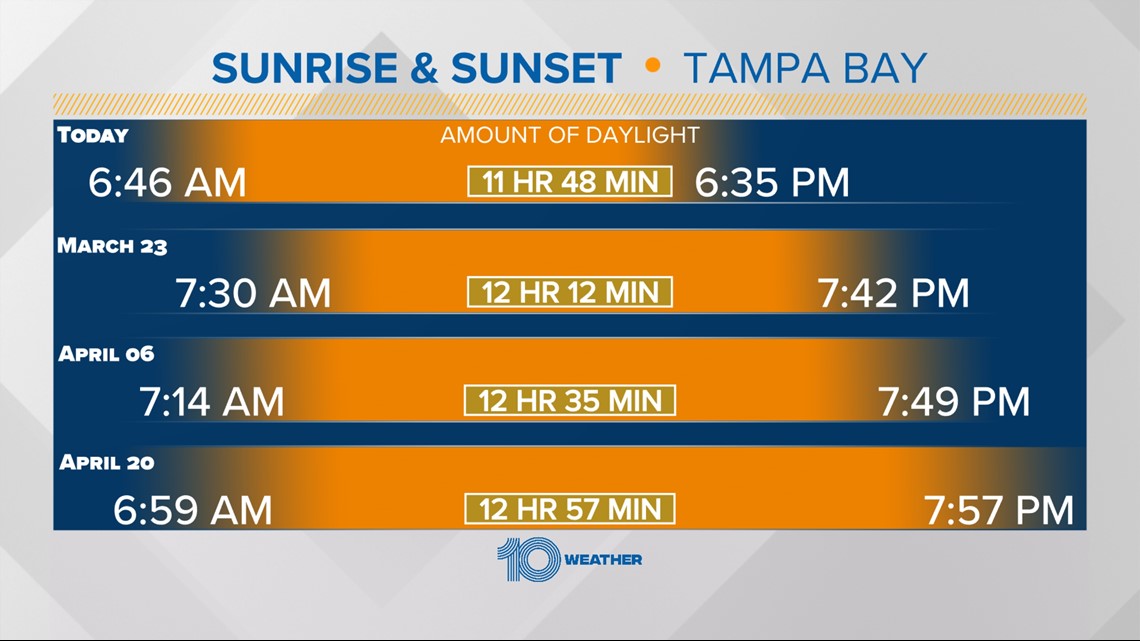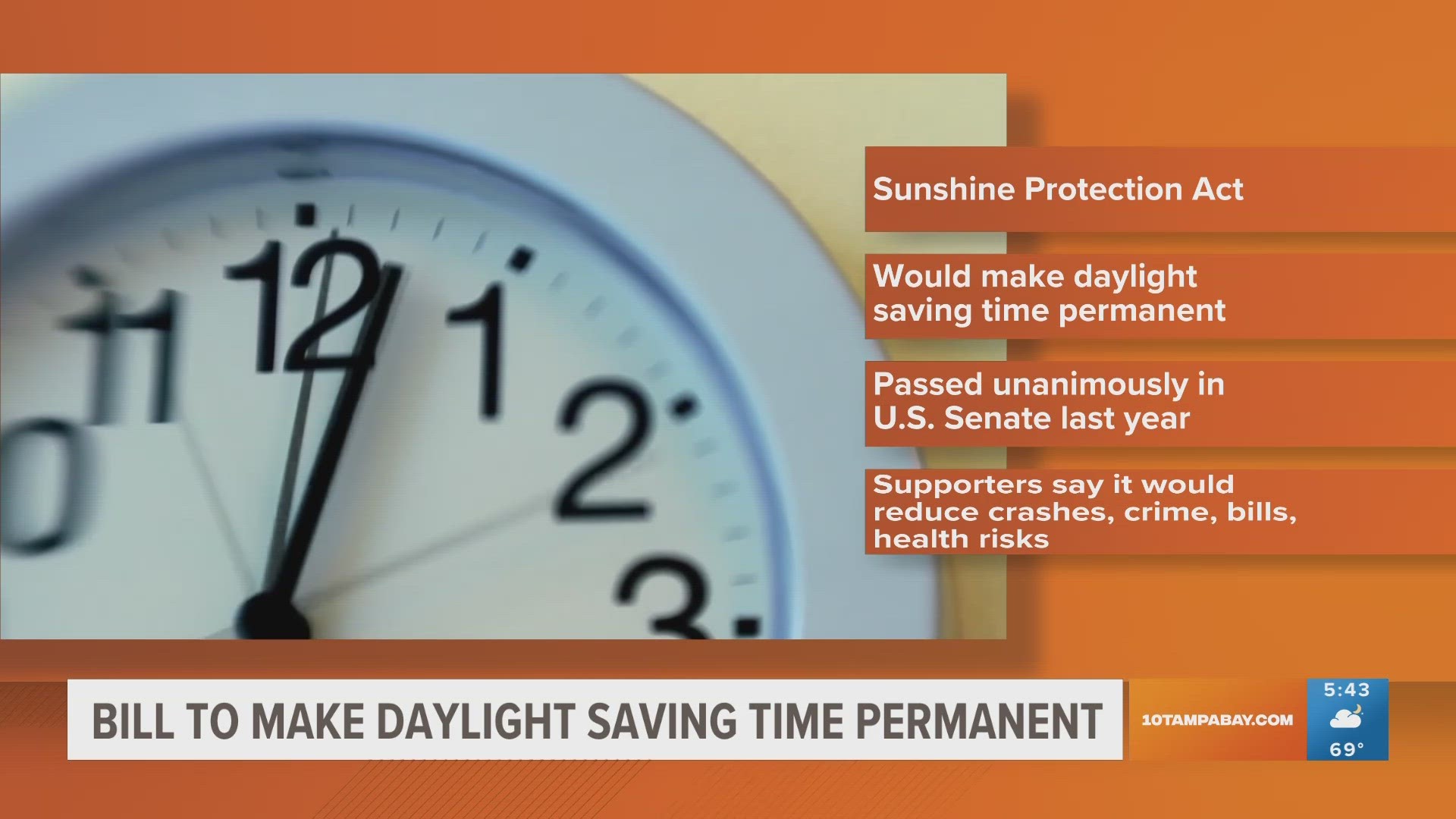TAMPA, Fla. — Daylight saving time is this Sunday, which means sunrises and sunsets will look a little different.
When we "spring forward" on March 12, our sunrises will begin a whole hour later, meaning early birds will begin their days in the dark. However, sunsets will get later each day, shifting the sunset time into the 7 p.m. hour — and later as we head into the summer.
Don't worry, daylight will increase quite rapidly in the weeks to come. In fact, daylight will grow about 1 minute and 40 seconds long each day. By March 23 the sunrise will be at 7:30 a.m. and the sunset at 7:42 p.m.
In six weeks, on April 20, the daylight will increase by over an hour where the sunrise will be at 6:59 a.m. and the sunset will be at 7:57 p.m.


So when you go to bed on Sunday, expect the time change at 2 a.m., which means that you’ll need to move your clocks up one hour before going to bed the night before on Saturday, March 11.
Many of us use our phones for alarm clocks, which could be an issue if you are planning to wake up early Sunday morning. Phone clocks will automatically go from 1:59 a.m. to 3 a.m., which means that if you set your phone alarm for any time in the 2 a.m. hour, your alarm may not go off.
This could be an issue for the more than 8,000 runners along with volunteers and spectators for the Skyway 10K race Sunday morning. If you want to wake up between 2 a.m. and 2:59 a.m. Sunday morning, make sure to set your alarm to go off between 1 a.m. and 1:59 a.m.
Sen. Marco Rubio is pushing to make daylight saving time permanent, again. He reintroduced the Sunshine Protection Act of 2023 last week.
"This ritual of changing time twice a year is stupid. Locking the clock has overwhelming bipartisan and popular support. This Congress, I hope that we can finally get this done," he wrote in a release.
If Rubio's bill passes and is signed into law by President Joe Biden, we will no longer "fall back" to get back on standard time.
The U.S. Senate unanimously approved Rubio's Sunshine Protect Act in March 2022, but it never came up for a vote in the House. In Florida, lawmakers also voted back in 2018 to "lock the clock" and keep daylight saving time permanent, but that hasn't taken effect either because it requires federal approval, which it hasn't gotten yet.
Federal law only allows states to opt-out of daylight saving time and permanently remain on standard time. But under the Uniform Time Act of 1966, states that want to stay on daylight saving time permanently – like Florida – need congressional approval.

